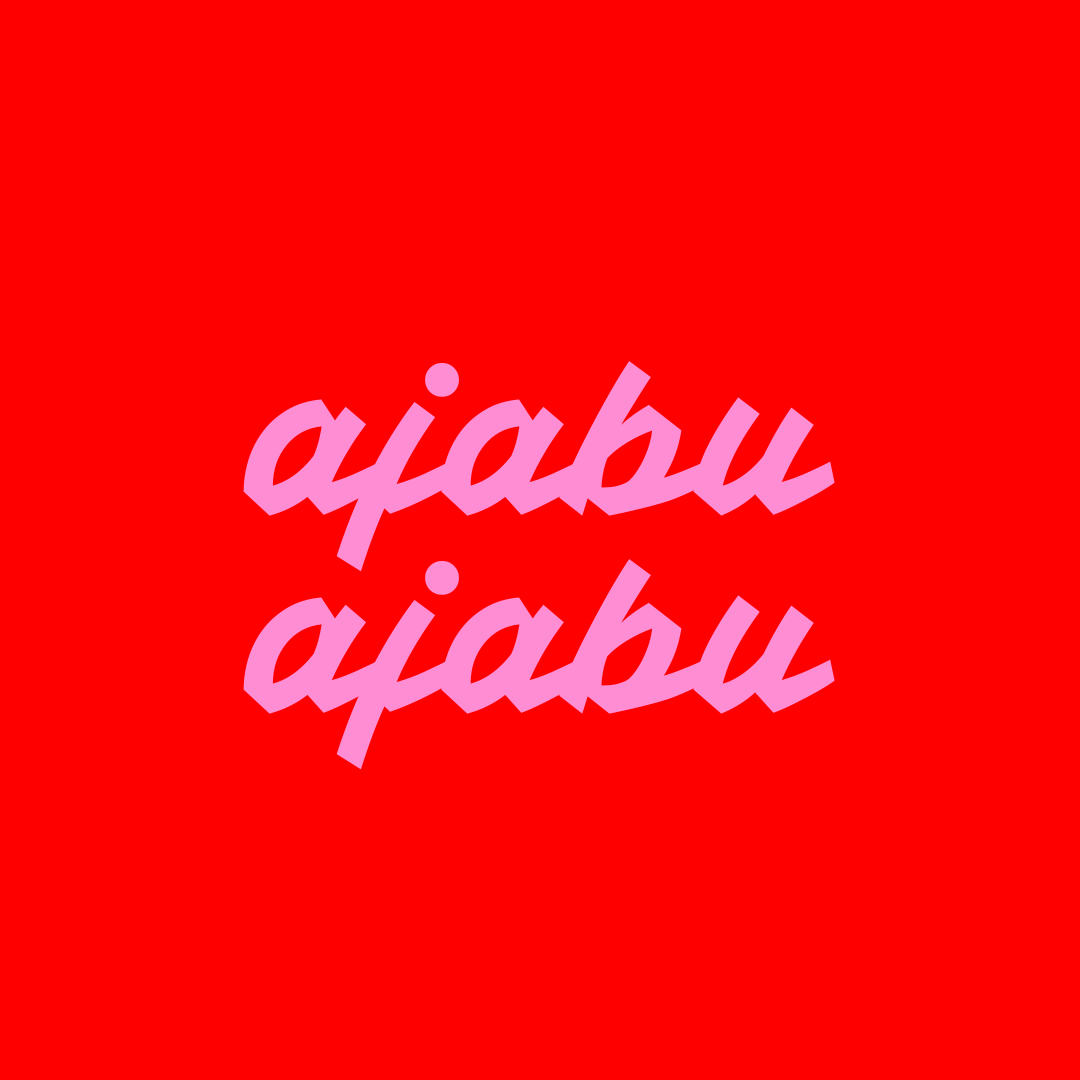maangamizi: the ancient one (2001)
a limited ajabu ajabu release
dir. Martin Mhando & Ron Mulvihill
The story of three women - a doctor, her patient, and the mysterious ancestor who unites them. A powerful meditation on the toll of displaced history and an essential work of Tanzanian cinema.’
contact us for booking
or visit gris gris films to stream
*
In 2001, a film was released from Tanzania titled Maangamizi: The Ancient One, directed by Martin Mhando and Ron Mulvihill, based on a story by Queenae Mulvihill. It is a film that explores the breadth of African consciousness and spiritual heritage through the story of three women: a doctor, her patient, and the ancestral spirit who unites them.
However, despite being recognised by prestigious international awarding bodies — the film has remained virtually unseen upon the continent, a fate far too common for works of African cinematic heritage.
Ajabu Ajabu invites you to question why that is and to explore the multitudinous ways in which the exhibition of such films has become an experience reserved for audiences outside the continent. A call to action for film practitioners to critique the power imbalance of cinema cultures — and to work towards encouraging not only return, but open and inclusive reinterpretation of works according to their ever-evolving cultural significance. A collective reimagining of the act of preservation along modes of continuous access for global film communities.
Our programme around this focus has included (ongoing) screenings, dialogues, exhibition, and the production of a short film on informal film cultures in Tanzania. The film, to be released within the coming months, highlights the restitution of Maangamizi to Tanzanian audiences — including our recent efforts to support open, creative reinterpretation of the film by local translators (DJs).
recent press on the re-release
Mubi Notebook / Quartz*
Everyday Use
by Jesse Gerard
Alice Walker wrote that watching Maangamizi is to experience reconnection. “The reconnection to The Way. The Way of the ancestors. The Way of relating to all. Then to now. Beginning to future. Human to earth.” Her method, a letter written to Queenae Mulvihill, the writer of Maangamizi, and Ron Mulvihill, who co-directed alongside Martin Mhando, has also fallen away from everyday use. These shifts continue, power today redefines the very method by which we interact with each other and our world. Yet words endure, stories endure, and those blessed with a spiritual proximity to such things, and an insistence on the imaginative over the calculated, will find themselves emboldened by Walker’s belief that “in the coming millennium the greatly prayed for difference in this world will be a conscious and connected indigenous presence.”
That presence pervades this film, and a story through which history and imagination merge to extend and even excise limiting parameters of existence. It is with this in mind, the excising of limiting parameters of life, that we undertake the retelling of this singular work, twenty years on.
Everyday Use, a short story by Alice Walker, sees the return of a sophisticated woman to her uneducated mother in their provincial home. Her visit is in part to see the place from which she (and by implication her success) emerged; in part to share the new name she has adopted in recognition of her heritage; and in part to locate objects that reflect her own story in the context of that history – objects that she may take ownership of. Her mother has other ideas. And in response to her mother’s wish to retain hand made quilts passed down from her grandmother for her younger sister she responds with horror, noting that her sister would be “backward enough to put them to everyday use.”
The story was published in 1973 but its questions are equally insistent today. Questions rooted in inequality, displacement, erasure, that emerge again and again in discontinuities existing across African consciousness – at home, and abroad - in language, education, economics, and other drivers of daily life. In the context of such displacement, the dissonance enforced by historical and contemporary acts of African dispossession, blankets cease to be blankets should they contain the texture of endurance. Echoes of lost traditions, cultures and ways of life linger in modest acts of remembrance across spectrums of class and education, and in our encounters and re-encounters with meticulously stored letters or photos albums it is difficult to stem persistent thoughts of absence, and disconnection from larger, more abundant birthrights. Yet these are often, if not always, quieted by the what these guarded objects inspire when shared closely and intentionally. Communion has always been the means by which life transcends the material.
Ajabu Ajabu derives its name from the Kiswahili for odd, strange, unusual.
We consider the re-release – one forged on large and small collaborations and exchanges with artists of all kinds – locally and abroad – to be in league with this strangeness, the kind consistently setting craft, imagination, intuition, inventiveness and empathy at odds with pathologies of procedural being. We begin, as we intend to proceed, aware of persistently homogenized perspectives, in cinema and elsewhere, but committed to stemming that particular tide by putting great stories to everyday use.
And it with this, we invite you by any mode preferred— physical, digital, vocal, filmic, literary, other – to our re-telling of Maangamizi: The Ancient One
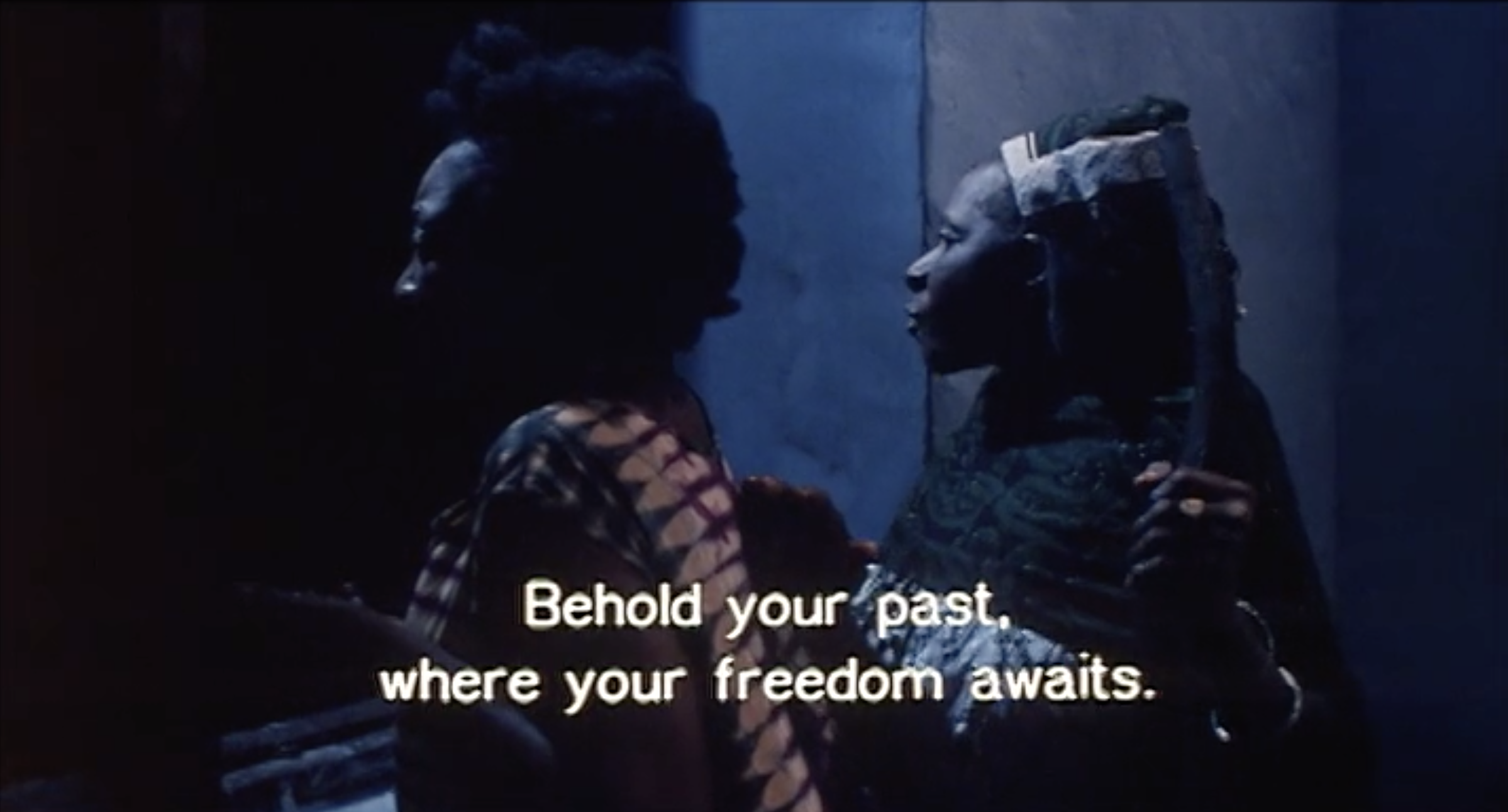
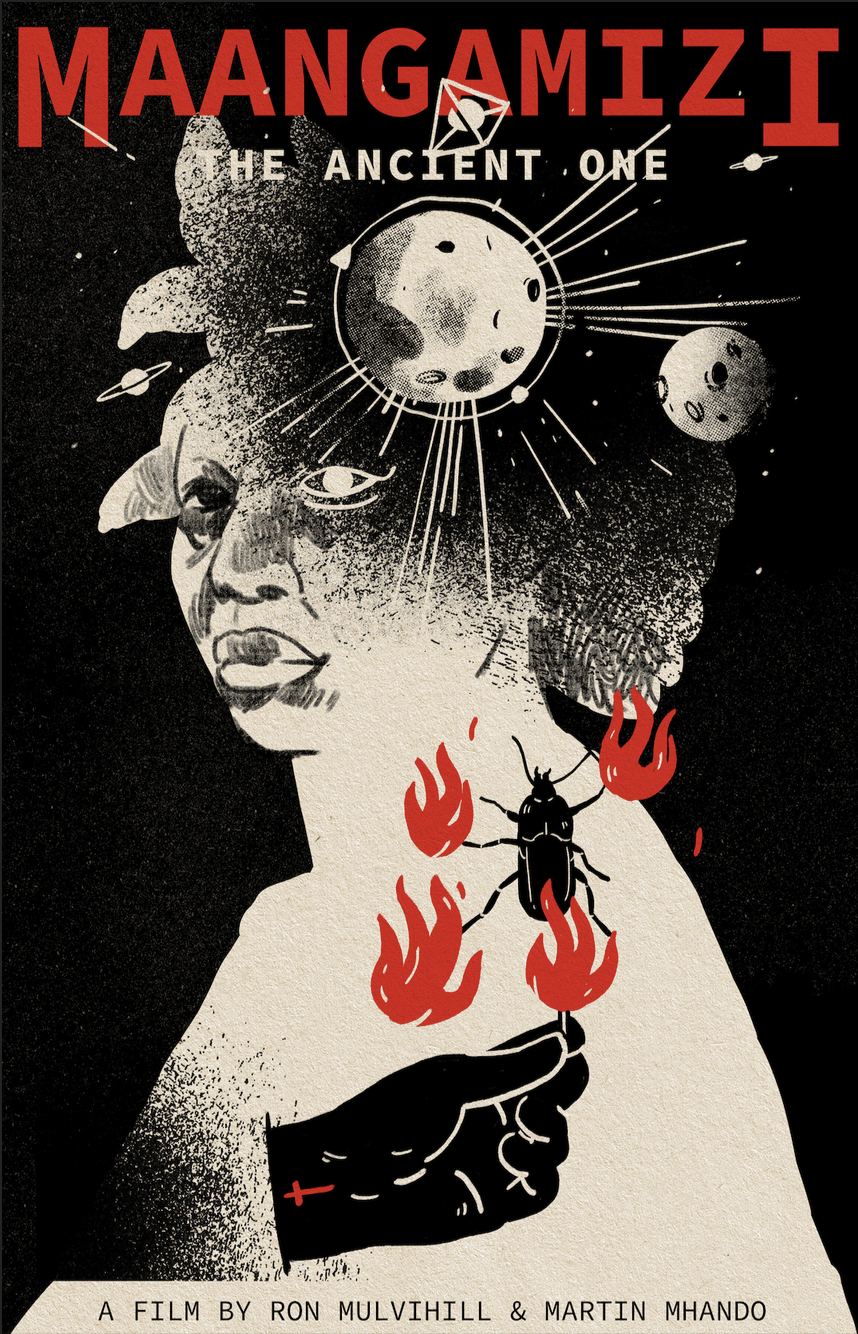
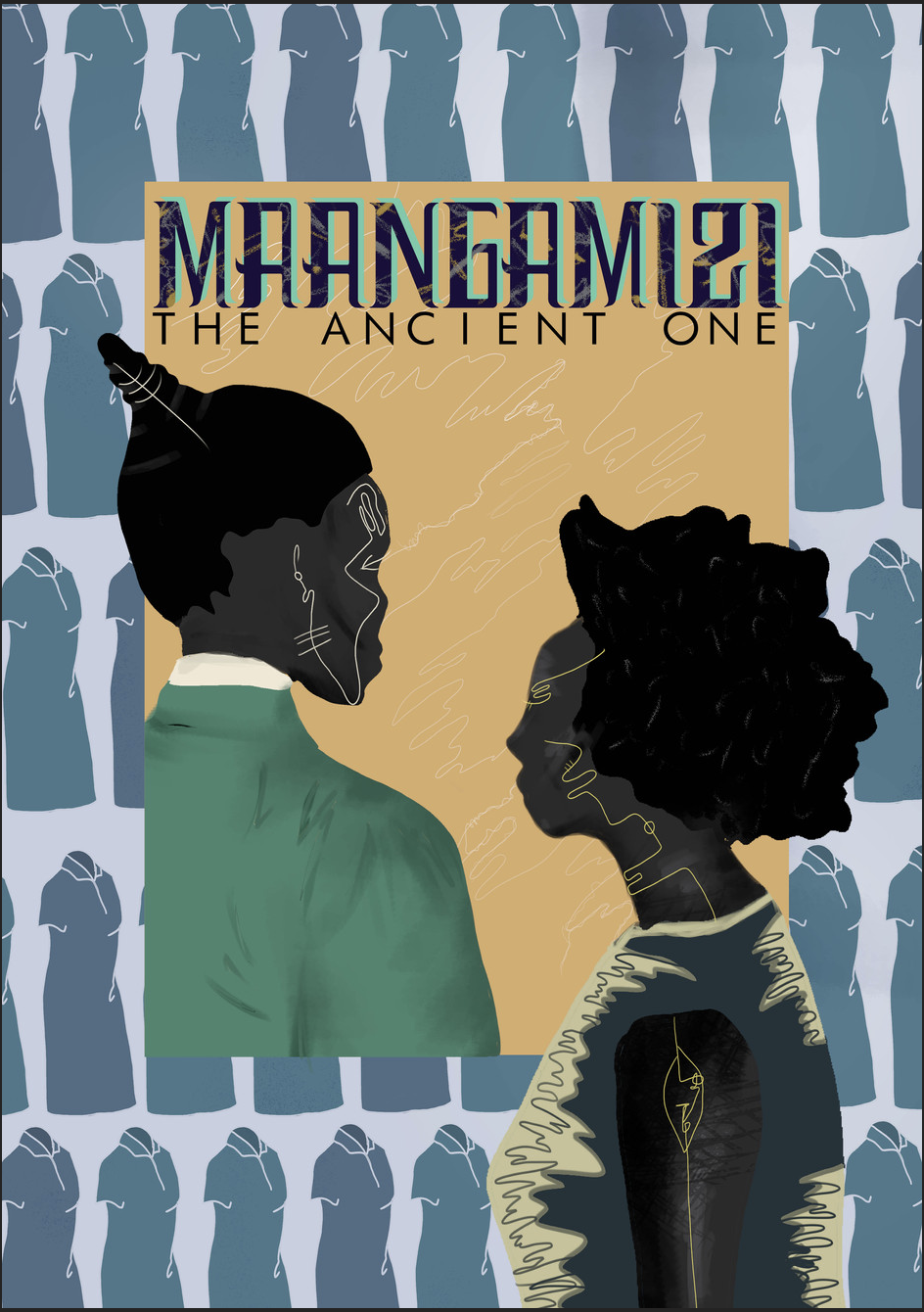

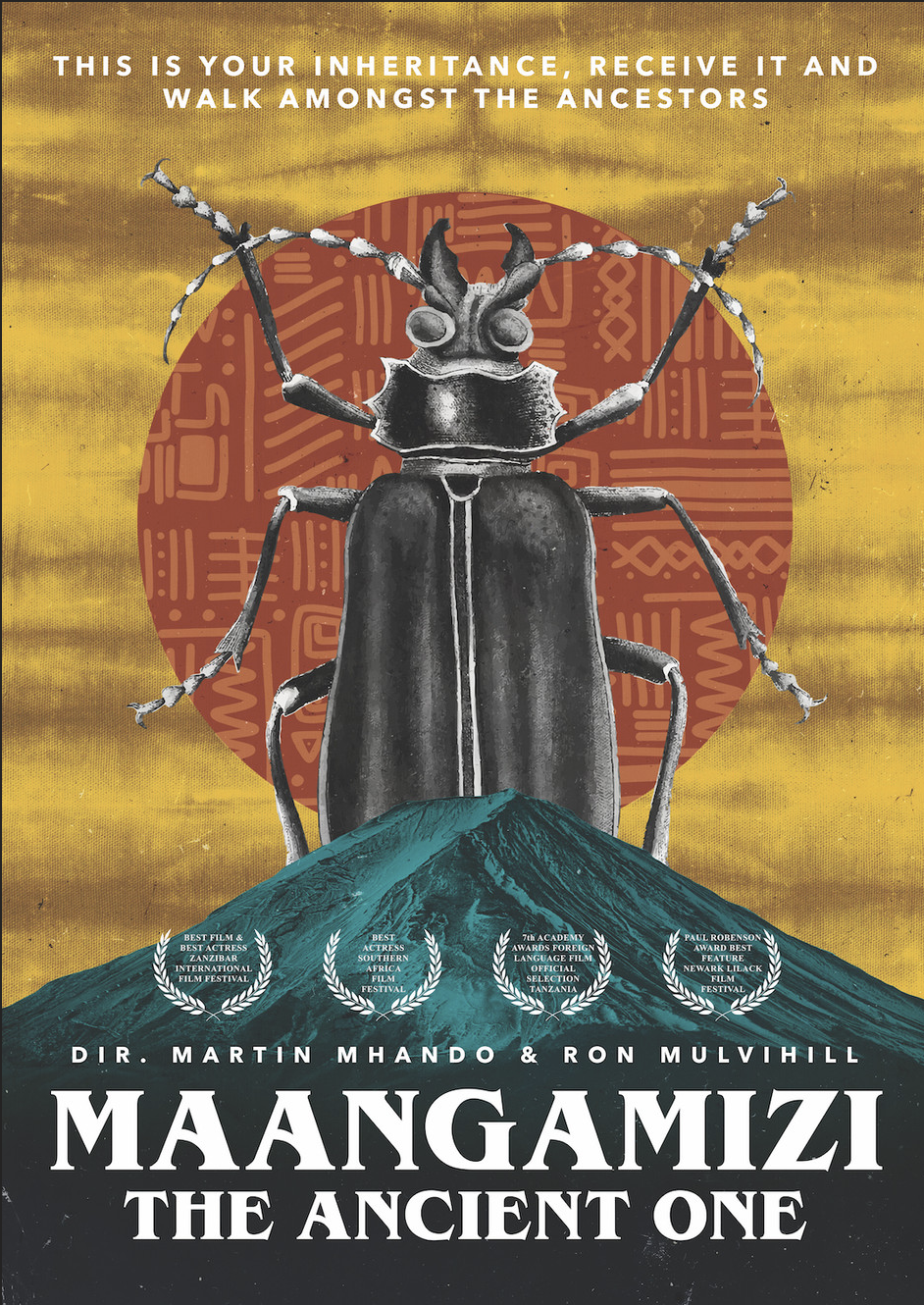
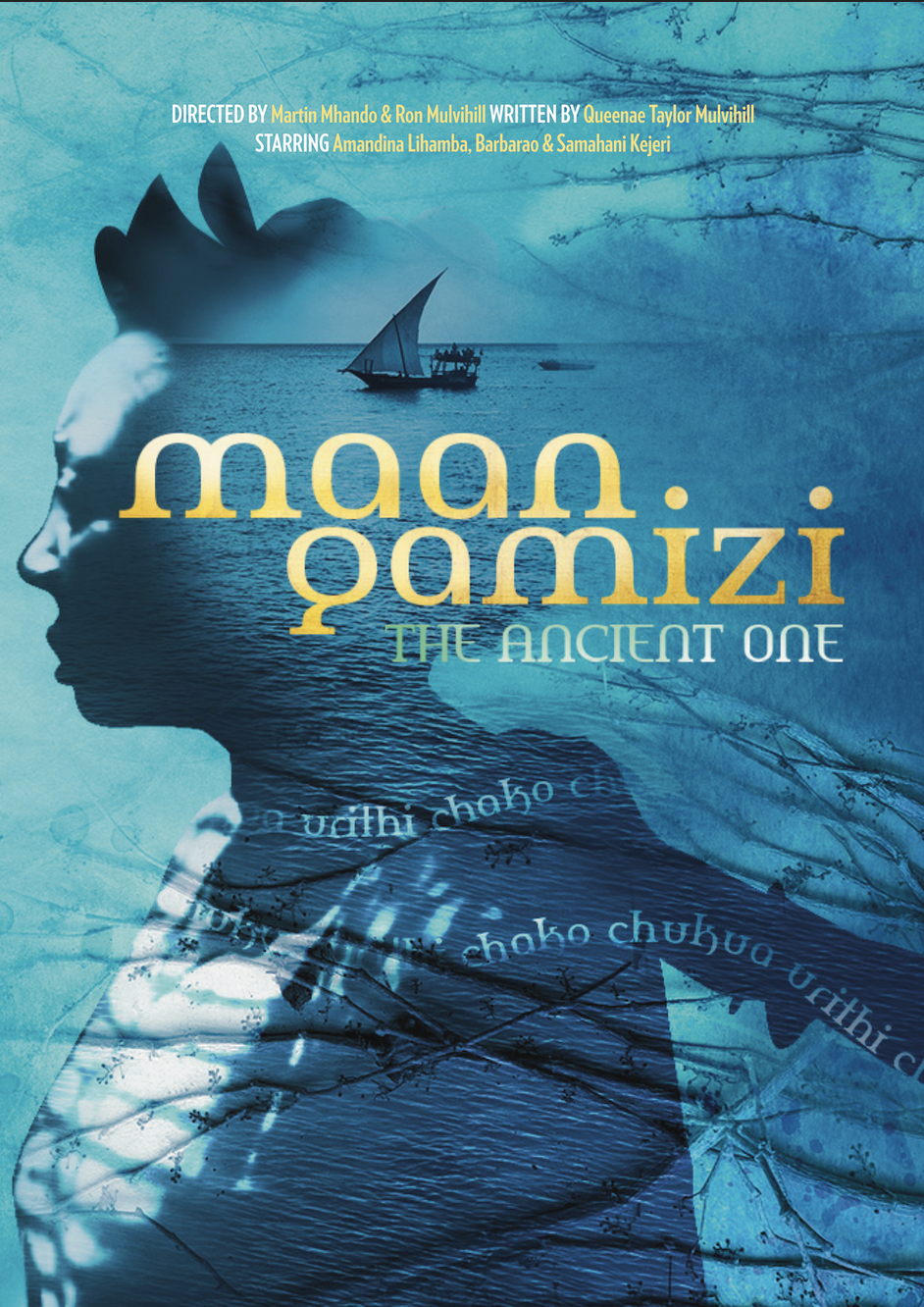
some creative reinterpretations
in related content
a stunning, short precursor to Maangamizi.
the marriage of mariamu from our friend and mentor ron mulvihill on vimeo
